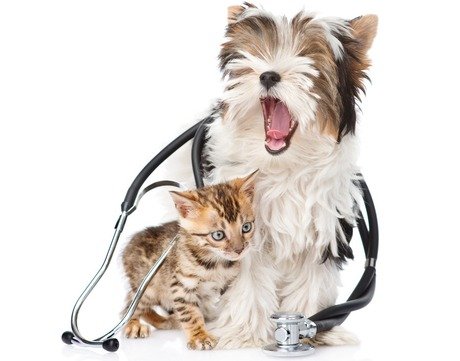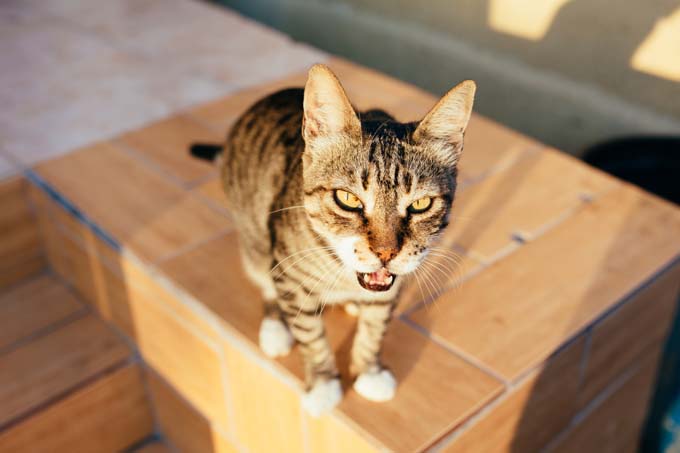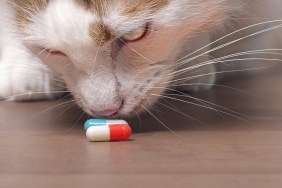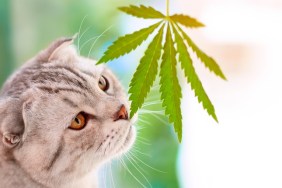It’s not like in the movies. A person ingests vial of poison and almost instantly the results are fatal. According to Dr. Tina Wismer, Medical Director of the ASPCA Animal Poison Control Center, “you need to act fast if you suspect your pet has eaten a poisonous substance, however, most toxins won’t activate immediately.”
Depending on the toxin, it could take up to 20 minutes or more for a reaction. The best plan of action is to call your pet’s veterinarian immediately. If it is a weekend or after hours and your veterinarian’s practice is closed, you can call the ASPCA Animal Poison Control Center hotline at 1-888-426-4435. The call is toll-free, however, a $65 consultation fee may be charged to your credit card. Based in Urbana, IL, the Center will put you in touch with an emergency veterinary clinic near your home. You can also look up the number for a veterinary emergency clinic in your area.
You won’t have to break any speeding laws to get your pet to the emergency veterinarian. “Still, you should act quickly,” said Dr. Wismer. “To save time, have the number of a nearby emergency veterinary clinic close by in case of an emergency.”
Awareness about poison prevention is in the news this week because March 20th-26th is National Animal Poison Prevention Week. It’s possibly due to the fact that when the weather is warmer the number of calls to the ASPCA’s Poison Control Center rises. “We usually get about 600 calls a day in the winter,” said Dr. Wismer. “That number increases in the summer; we get up to 800 calls a day then.”
Dr. Wismer suspects the increase of calls results from our being outdoors and around plants, herbicides, fertilizers, and pesticides. “Our exposure is increased then and our dogs spend more time outside,” she says. “We also do more hiking then. So, it’s important to note which plants to watch out for.”
If you come across a plant that you can’t identify, Dr. Wismer recommends using the camera on your cell phone to take a photo of it and upload it to a Facebook group that identifies plants.

The ASPCA also has a new Poison Prevention App that provides you with life-saving information. The app is free and can be downloaded here. Also on the ASPCA site is information about poisonous plants, what to do if you think your pet swallowed a poisonous substance, and general safety tips.
While we have to be careful when we are outside with our dogs, the number one substance that the ASPCA’s Poison Control Center gets the most calls about is chocolate; large amounts of chocolate can be lethal to both dogs and cats. “We also get a lot of calls about ibuprofen, acetaminophen, and other over-the-counter drugs,” says Dr. Wismer. “People leave those small pill bottles on a counter that a dog or cat can easily get to.” It’s always a good idea to poison-proof your home and educate yourself on what can be toxic to your pets.
It’s important to keep all medications in a cabinet that is out of your pet’s reach. “Think of pets almost like toddlers,” says Dr. Wismer. “Everything that is dangerous should be out-of-reach.”
That includes houseplants too, which can be a favorite of cats. We hear that dogs eat anything and that cats are finicky. When it comes to houseplants it is necessary to keep all plants out of your cat’s reach. “If you get a plant that you think may be harmful to your cat, put it in a locked room, and bring it to work with you so you and your co-workers will enjoy it,” said Dr. Wismer. “This way it is away from your cat.”

It’s a smart idea to check out the ASPCA’s Poison Prevention information before you need it. This way you will be prepared for any possible poison related crisis and able to act swiftly to save your pet.











